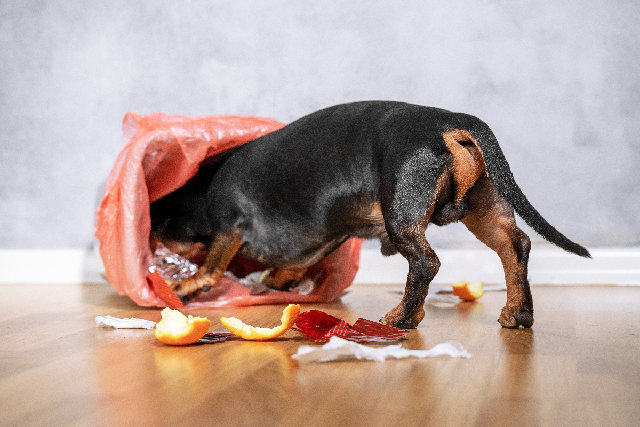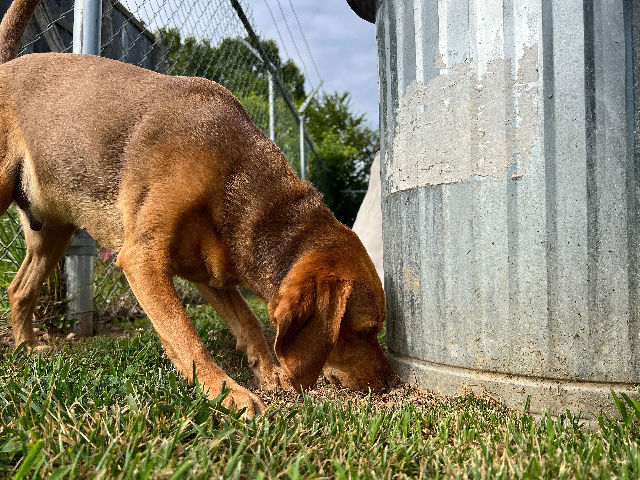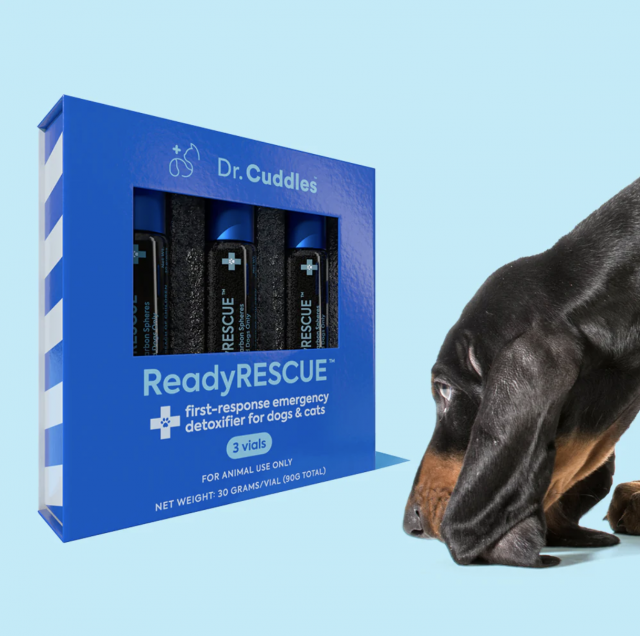iHeartDogs is reader-supported. When you buy via links on our site, we may earn an affiliate commission at no extra cost to you.
Have you ever come home to find your trashcan turned over and bits of garbage all over the kitchen? You are not alone. Maybe you try to train your dog to stay away from the trash, but he just never seems to completely learn. He might avoid it while you are there, but you still come home to a big mess sometimes.
Dogs are scavengers who have evolved with humans. They are not really hunters like their wolf ancestors, but instead are instinctively much more clever. Early dogs realized how much easier and safer it was to find human leftovers than to chase and kill potentially dangerous prey. Even small prey that is unlikely to be dangerous requires hunting and chasing and expenditure of energy. Your smart dog knows that the return on his investment is much greater sifting through your trash than finding, stalking, hunting, catching, and killing something to eat. The trouble is that now our dogs are not used to eating scraps and trash and it can be quite a problem.

Because dogs depend on their acute sense of smell to locate items that might be good to eat, your trash is a smorgasbord of delicious scents to your dog, whose species has depended on being able to find food in unlikely places. While he is initially attracted by the scents and food items in the trash, he probably decided that it was kind of fun to tear apart the packaging and all the stuff inside.
However, getting into the trash can be quite dangerous for our pet dogs. They can find bones, spoiled food, and items that can lodge in their gastrointestinal tract. In fact, illness related to getting in the trash is so common that veterinarians have a slang term for it: “Garbage Enteritis”. The problems associated with “Garbage Enteritis” can range from mild vomiting and diarrhea all the way to an emergency intestinal blockage. Any dog that is showing signs of gastric upset, like vomiting or diarrhea (whether or not there has been garbage eating) should see a vet without delay.

Finding trash all over your floor and having your dog eat things that were not intended for him is less than ideal in our modern world. To avoid this, try to think like a dog. If you plan to put food scraps in your trash, be sure that it is inaccessible to curious dog noses. If you cannot make the trash can truly out of reach, remove all food items to an outside can. You can recycle plastic grocery bags to separate food scraps and take them out when you clean up from meals.
Just a little planning can save you from cleaning up trash and your dog from getting sick, so it is a worthwhile investment to lock away your trash can!
Be prepared and act fast: Keep Dr. Cuddles’ ReadyRESCUE emergency detoxifier on hand if you have a dog who likes to dig through the trash, counter-surf, or sneak treats they shouldn’t. ReadyRESCUE is a veterinary-grade detoxifier that can buy you precious time on your way to the vet if your dog eats toxic items including chocolate, grapes, onions, and more.
Do you adore dogs and want to find others that share your passion? Follow me on Facebook by clicking here and meet my dog-loving friends.
iHeartDogs is reader-supported. When you buy via links on our site, we may earn an affiliate commission at no extra cost to you.

